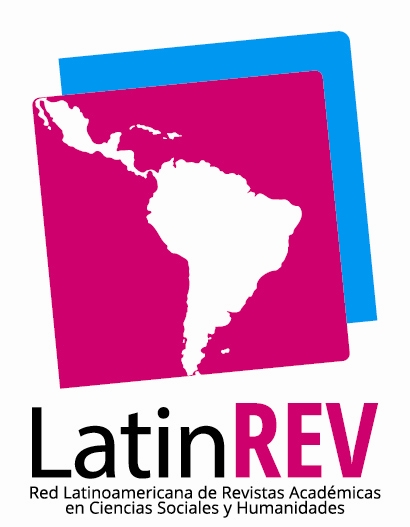Bilingual Intercultural Education (BIE) and Public Policies. The BIE in the “Planning Frames for Indigenous Peoples” of Programs with external funding
Keywords:
Bilingual intercultural education, public policies, planning frames for indigenous peoplesAbstract
We agree with several authors that the economic approach to the educational problems of international organizations implies a great bias, however, in this work we propose a reading of the educational approach in projects financed by the World Bank. Instead of analyzing documents prepared for educational reforms that international organizations understand are necessary, we propose the reading of documents prepared for the execution of public policies where education is strategic, in some cases, key to some ventures. In a first section, international and national regulations regulating intercultural education in Argentina are addressed. In a second section, the policies of international credit organizations regarding Indigenous Peoples are analyzed. In a third section, the so-called “Planning Frames for Indigenous Peoples” are characterized and three examples are offered: RenovAr Program of the Ministry of Energy and Mining (2019); the Water and Sanitation Project, Plan Belgrano, of the Ministry of Public Works of theMinistry of Interior, Public Works and Housing (2017); and the Effective Universal Health Coverage Project of the Ministry of Health of the Nation (2017).Finally, it reflects on the interaction of the Argentine State, the financial sector and the indigenous peoples.
Downloads
References
Aranda, D. (2010). Argentina originaria. Genocidios, saqueos y resistencias. Buenos Aires: La Vaca.
Biagini, H. E. y Roig, A. A. (2009). Diccionario del pensamiento alternativo. Buenos Aires: Biblos.
Briones, C. (Comp.) (2005). Cartografías argentinas: políticas indígenas y formaciones provinciales de alteridad. Buenos Aires: Antropofagia.
Canan, S. R. (2017). Influencia de los organismos internacionales en las políticas educacionales: ¿sólo hay intervención cuando hay consentimiento? Ciudad Autónoma de Buenos Aires: CLACSO.
Constitución Nacional de la República Argentina (1994). Recuperado de: http://bibliotecadigital.csjn.gov.ar/Constitucion-de-la-Nacion-Argentina-Publicacion-del-Bicent.pdf
Corte Interamericana de Derechos Humanos (CIDH) (2019). Buscador de Jurisprudencia http://www.corteidh.or.cr/CF/Jurisprudencia2/index.cfm?lang=es&nId_Estado=24
Domenech, E. (2004). “El banco mundial en el país de la desigualdad. Políticas y discursos neoliberales sobre diversidad cultural y educación en América Latina”, en A. Grimson. Cultura y Neoliberalismo. Buenos Aires: CLACSO.
Feldfeber, M. y Gluz, N. (2011). “Las políticas educativas en Argentina: herencias de los ’90, contradicciones y tendencias de ‘nuevo signo’”, en Educ. Soc., Vol. 32, N° 115, 339-356.
GBM (1991). Directriz Operativa OD 4.20 Concerniente a los Pueblos Indígenas. Recuperado de: http://www.ifc.org/wps/wcm/connect/b60a30004885573ebbc4fb6a6515bb18/OD420_Spanish.pdf?MOD=AJPERES
GBM (2005). Políticas Operacionales OP 4.10 Pueblos Indígenas. Recuperado de: http://siteresources.worldbank.org/OPSMANUAL/Resources/210384-1170795590012/OP4.10.July1.2005.Spanish.pdf
GBM (2014). Marco ambiental y social. Establecimiento de estándares para el desarrollo sustentable. Primer borrador para consulta. Recuperado de: https://consultations.worldbank.org/Data/hub/files/consultation-template/review-and-update-world-bank-safeguard-policies/es/phases/proposed_es_framework_first_draft_for_consultation_final_spanish_0.pdf
Gomiz, M. M. y Salgado, J. M. (2010). Convenio 169 de la O.I.T. sobre Pueblos Indígenas. Su aplicación en el derecho interno argentino. Neuquén: Observatorio de Derechos Humanos de Pueblos Indígenas. Grupo Internacional de trabajo sobre Asuntos Indígenas.
Grimson, A. (2011). Los límites de la cultura. Crítica de las teorías de la identidad. Buenos Aires: Siglo XXI.
Harvey, D. (2005). El “nuevo” imperialismo: acumulación por desposesión. Buenos Aires: CLACSO.
Harvey, D. (2010). El enigma del capital y la crisis del capitalismo. Madrid: Akal.
IFC (2006). Política sobre sostenibilidad social y ambiental. Recuperado de: http://www.ifc.org/wps/wcm/connect/aad62b804942f9baab8dff4f5ddda76e/SustainabilityPolicy_Spanish.pdf?MOD=AJPERES
IFC (2010). Política sobre sostenibilidad social y ambiental Rev-0.1. Recuperado de: https://www.ifc.org/wps/wcm/connect/0645860049800adbac72fe336b93d75f/Sustain%2BPolicy%2Bclean%2BSpanish.pdf?MOD=AJPERES
IFC (2012). Política sobre sostenibilidad ambiental y social. Recuperado de: http://www.ifc.org/wps/wcm/connect/d6f1e00049a79ce5b9c2fba8c6a8312a/SP_Spanish_2012.pdf?MOD=AJPERES
IFC (s/f). Revisión y actualización del Marco de Sostenibilidad del IFC: descripción general de las cuestiones fundamentales. Recuperado de: http://www.ifc.org/wps/wcm/connect/26d5da8049800939a5cdf7336b93d75f/CODE_Progress%2BReport_AnnexA_Spanish.pdf?MOD=AJPERES
Ley 23.302. Política Indígena y Apoyo a las Comunidades Aborígenes (1985). Recuperado de: http://www.inapl.gov.ar/renycoa/LEY_%2023302.pdf
Ley 24.195. Ley Federal de Educación (1993).
Ley 26.206. Ley Nacional de Educación (2006). Recuperado de: https://www.me.gov.ar/doc_pdf/ley_de_educ_nac.pdf
Mendes Pereira, J. (2016). “Poder, política y dinero: la trayectoria del Banco Mundial entre 1980 y 2013”, en Mendes Pereira, J. M. y Pronko M. A. (org.) La demolición de derechos: un examen de las políticas del Banco Mundial para la Educación y la Salud (1980 –2013). Luján: EdUNLu.
MEyM (2016). Marco de planificación para Pueblos Indígenas del Programa RenovAr. Recuperado de: https://www.minem.gob.ar/archivos/aportes-renovar/marco-de-planificacion-para-poblaciones-indigenas.pdf
MEyM (2017). Marco de planificación para Pueblos Indígenas del Programa RenovAr. Recuperado de: https://scripts.minem.gob.ar/octopus/archivos.php?file=7508
MEyM (2019). Marco de Gestión de Riesgos Ambientales y Sociales (MGRAS) del Programa RenovAr. Recuperado de: https://www.argentina.gob.ar/sites/default/files/marco_de_planificacion_de_pueblos_indigenas_anexo_j_26_02_2019_v10.pdf
MIOPyV (2017). Marco de planificación para pueblos originarios del Proyecto de Agua Potable y Saneamiento, Plan Belgrano. Recuperado de: https://ucpypfe.mininterior.gob.ar/BIRF%20SN/Marco%20de%20Planificaci%C3%B3n%20de%20Pueblos%20Ind%C3%ADgenas%20(MPPI).pdf
MS (2017). Marco de planificación para pueblos indígenas del Proyecto Cobertura Universal Efectiva de Salud. Recuperado de: http://www.ufisalud.gov.ar/attachments/article/360/MPPI%20CUS-Sumar%20con%20consulta.pdf
OIT (1989). Convenio 169 de la Organización Internacional del Trabajo sobre Pueblos Indígenas y Tribales. Recuperado de: http://www.ilo.org/wcmsp5/groups/public/@ed_norm/@normes/documents/publication/wcms_100910.pdf
ONU (2007). Declaración de las Naciones Unidas sobre los Derechos de los Pueblos Indígenas. Recuperado de: http://www.un.org/esa/socdev/unpfii/documents/DRIPS_es.pdf
Plan Maestr@ del Honorable Congreso de la Nación (2017). Recuperado de: http://www.bnm.me.gov.ar/giga1/documentos/EL005527.pdf
Pronko, M. A. (2016). “El Banco Mundial en el campo internacional de la educación”, en Mendes Pereira, J. M. y Pronko, M. (org.) La demolición de los derechos: un examen de las políticas del Banco Mundial para la educación y la salud 1980 –2013. Luján: EdUNLu.
Pronko, M. (2019). “Modelar el comportamiento y fomentar los aprendizajes: nuevas estrategias del Banco Mundial para la educación en la periferia del capitalismo”, en Romero, S. (Comp.) Hipotecando (nos) el futuro: las estrategias de los organismos internacionales para mantener el consenso. San Luis: Nueva Editorial Universitaria.
Quiroga, M. V. (2019). “Los Organismos Internacionales y su estrategia imperialista. Notas en torno al Informe “Argentina, los jóvenes de hoy: un recurso latente para el desarrollo””, en Romero, S. (Comp.) Hipotecando (nos) el futuro: las estrategias de los organismos internacionales para mantener el consenso. San Luis: Nueva Editorial Universitaria.
Romá, M. C. y Figueroa Garro, B. (2017). “La diversidad cultural y los recursos naturales en normativas de organismos internacionales”, en XII Jornadas de Sociología: “Recorridos de una (in)disciplina. La Sociología a sesenta años de la fundación de la Carrera”. UBA. 22 al 25 de agosto de 2017.
Romá, M. C. (2019). “Continuidades y rupturas en las estrategias “Educación para todos” y “Aprendizaje para todos” del Banco Mundial”, en Romero, S. (Comp.) Hipotecando (nos) el futuro: las estrategias de los organismos internacionales para mantener el consenso. San Luis: Nueva Editorial Universitaria.
Romero, S. (2019). “Los organismos internacionales y la construcción del consenso: las políticas de educación superior como estrategias de dominación”, en Romero, S. (comp) Hipotecando (nos) el futuro: las estrategias de los organismos internacionales para mantener el consenso. San Luis: Nueva Editorial Universitaria.
Ruiz Chiriboga, O. R. y Donoso, D. (2014). “Pueblos indígenas y la corte interamericana de Derechos humanos: fondo y reparaciones”, en Steiner, C. y Uribe, P. (eds). Convención Americana sobre Derechos humanos: comentario (947-1026). La Paz, Bolivia: KAS.
Salgado, J. M. y Aylwin, J. (s/f). “Presentación”, en Convenio 169 de la Organización Internacional del Traba-jo sobre Pueblos Indígenas y Tribales y Declaración de las Naciones Unidas sobre los Derechos de los Pueblos Indígenas. Observatorio de derechos humanos de pueblos indígenas. Observatorio ciudadano de Temuco.
Sousa Santos, B. (2006). “Hacia una sociología de las ausencias y de las emergencias”, en Conocer desde el Sur. Por una cultura política emancipatoria. Lima, Perú: Fondo Editorial de la Facultad de Ciencias Sociales-UNMSM.
Svampa, M. (2016). Debates latinoamericanos. Indianismo, desarrollo, dependencia y populismo. Buenos Aires: Edhasa.
Svampa, M. (2017). Del cambio de época al fin de ciclo. Gobiernos progresistas, extractivismo y movimientos sociales en América Latina. Buenos Aires: Edhasa.
Svampa, M. (2019). Las fronteras del neoextractivismo en América Latina. Conflictos socioambientales, giro ecoterritorial y nuevas dependencias. Alemania: Calas.
Thwaites Rey, M. (1994): “La noción gramsciana de hegemonía en el convulsionado fin de siglo”, en Gramsci mirando al Sur. Buenos Aires: K&ai.
Walsh, C. (2006). “Interculturalidad y colonialidad del poder. Un pensamiento y posicionamiento otro desde la diferencia colonial”, en Walsh, C. (Comp.) Interculturalidad, Descolonización del Estado y del Conocimiento. Buenos Aires: Signo.
Walsh, C (2009). “El Estado y la problemática desafiante de la interculturalidad”, en Interculturalidad, Estado, Sociedad. Luchas (de)coloniales de nuestra época. Ecuador: Universidad Andina Simón Bolivar: Abya Yala.
Wolkmer, A. C. (s/f). Pluralismo jurídico: nuevo marco emancipatorio en América Latina. Recuperado de: http://bibliotecavirtual.clacso.org.ar/ar/libros/derecho/wolk.rtf
Resolución N° 107/99 del Consejo Federal de Cultura y Educación (FCyE) (1999). Recuperado de: https://cfe.educacion.gob.ar/resoluciones/res99/107-99.pdf
UNESCO (2001). Declaración Universal de la UNESCO sobre la Diversidad Cultural. Recuperado de: http://portal.unesco.org/es/ev.php-RL_ID=13179&URL_DO=DO_TOPIC&URL_SECTION=201.html
Downloads
Published
Issue
Section
ARK
License
Copyright (c) 2019 María Celeste Romá

This work is licensed under a Creative Commons Attribution 4.0 International License.






